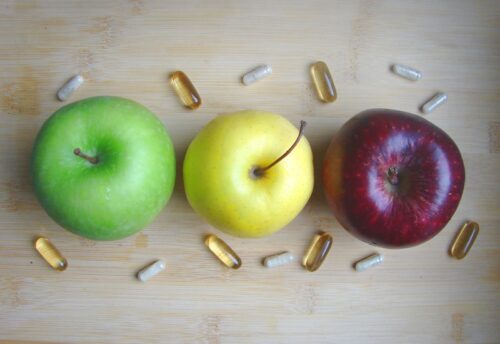
Readers of this column know, the Gifford-Jones natural health philosophy is built on the premise that the medical establishment should not be your first stop for staying healthy. Doctors are best as a last resort. Tragic bad luck aside, your first defense should be Mother Nature in combination with good lifestyle choices. But what does this mean as you age?
Natural supplements are low-cost and widely available, but they are not marketed with the same multimillion-dollar budgets as most pharmaceutical drugs. So a good starting point is to adopt common sense.
Unless your doctor has a strong rationale for putting you on drugs, and a plan to get you off them, you should ask more questions and do more homework. Have you, for example, enquired about the root causes of the ailments that age inevitably brings? Where can you turn for options?
Experts in your local natural health food store can help. There are some natural supplements that are easy to understand and the choices are simple. A good example would be vitamin D. Deficiency is common, especially during the winter months for those who live in the north. We know vitamin D fortifies our immune system and the range of advisable dosages is clear. There is little difference, one brand to another.
Other vitamins and minerals are more complex. It’s worth your while to get good advice.
Vitamin C is one of them. Vitamin C at very small doses will protect you from scurvy. But at much higher doses, it fortifies your body’s immune response and protects your cardiovascular system from build up of plaque in the arteries. Vitamin C is best when combined with lysine. Why? Because vitamin C is required to manufacture healthy collagen, the glue that holds coronary cells together, just like mortar is needed for bricks. Lysine, like steel rods in cement, makes collagen stronger.
Experts will know the research. Linus Pauling, two-time Nobel laureate, claimed it takes a mere 10 milligrams of vitamin C to prevent scurvy, but several thousand to prevent heart attack. Williams Stehbens, Professor of Anatomy at Wellington University in New Zealand, proved Pauling was right. Stebhens’ research showed that coronary arteries closest to the heart are under the greatest pressure. This causes collagen to fracture resulting in the formation of a blood clot and death.
But what about other supplements? How should you assess what you need or should try?
Let’s take a common issue. It’s a fact that aging leads to wear and tear on our bodies. Joint pain is a common complaint, the result of osteoarthritis. Oftentimes, waiting too long to recognize this problem is the bell that tolls for a medical solution.
Surgery to fix knees, hips or shoulders comes with significant risks. The smarter approach is to address these joint problems before they require surgical procedures.
Experts in naturopathic or alternative treatments may have good remedies for you. Keep in mind the fast pace of scientific research on the complex interactions that nutrients have in our guts and metabolism. New findings are published in scientific journals everyday. Fortunately, even natural remedies are gaining more attention in research labs.
That pain in the knee or other joints may benefit from organic sulfur, an essential mineral and natural component of soil, and in turn, our food. Healing Earth is a supplement that combines this mineral with humic acid. These ingredients act together to alleviate inflammatory conditions and relieve the pain of osteoarthritis. Clinical studies confirm its efficacy.
The bottom line? Think about the roots of your health problems, get advice from experts who focus on prevention of disease, and make daily good choices to keep yourself away from needing medical interventions.
Sign-up at www.docgiff.com to receive our weekly e-newsletter. For comments, contact-us@docgiff.com.
